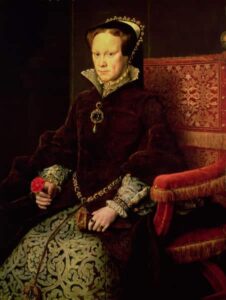
On the 6th July 1557, Mary I’s husband, King Philip II of Spain, left England for France, followed by the Earl of Pembroke and 1,000 English soldiers a few days later. Author and historian, Anna Whitelock, notes how the force included “former rebels and plotters”, such as Robert Dudley, Sir Peter Carew, Sir James Croft and Sir Nicholas Throckmorton.
In the August, some of Pembroke’s men helped the Spanish troops capture the city of Saint-Quentin – a great start to the war on France. However, on the 1st January 1558, the French took adavantage of the winter lull in campaigning and the frozen marshes to wreak their revenge on the English forces. 27,000 French soldiers attacked the city of Calais which had been in English possession since 1347 when Edward III captured it. It was the very last English territory in France. By the 7th January, French troops, led by the Duke of Guise, had entered the castle, forcing the Lord Deputy of Calais, Thomas Wentworth, to surrender.
It was a huge blow for Mary I and England and it is said that Mary exclaimed to one of her attendants, “”When I am dead and opened, you shall find ‘Philip’ and ‘Calais’ lying in my heart”. Mary never saw her husband again and she died just 10 months later, on the 17th November 1558.

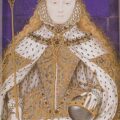
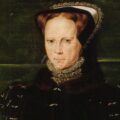


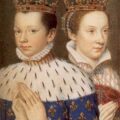
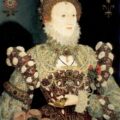




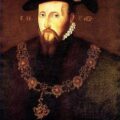
I wonder if she really said that about Calais. That was a real blow to her though,I”m sure. She is a pathetic woman, so in love with a man who did not love her. Although I have read he was always kinds and chivalrous to her when he was with her. Thanks!
When I think of all the political and religious problems in
England, I am not surprised that the French chose this time to take
Calais. I think Mary wanted to rely on the Emperor as she had
always done, not really understanding that he put his own interests
first. In a way it helps me understand why Elizabeth may have toyed
with the idea of a marriage but never went through with it so
England would not be too closely tied to another nation.
Anne how can you make such an assumption about Mary? A pathetic woman? Mary was certainly nothing of the sort, although Mary was hopelessly in love with Philip he did not despise her as many historians will try and proclaim. He thought enough of Mary in the beginning of their marriage that he would “love talk” to her as said by Ruy Gomez but after her first phantom pregnancy is when he became the hard Spanish husband.
And Lisa, although you may think that there were some extremely complex political and religious issues, politics and religion were mashed into one during Mary’s reign, quite simply, Protestants v Catholics. Although this chasm did make Mary basically a queen all alone her church and parliament became stronger and she personally delt with any that were threatening her throne, kingdom, or authority, and by handle I do not mean burn.That Mary was able to create a formidable army and get so much money for the war meant that despite the state Mary gained England in she was still a threat if need be. The loss of Calais was not in fact Mary’s fault but the people in charge of Calais. Even though the loss of Calais was a blow to England pride, it was a blessing, all continental holdings were just drags on the economy.